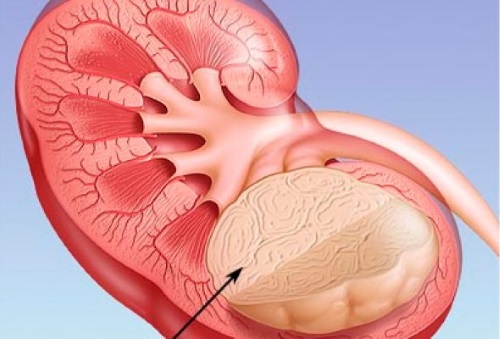Assessing ADHD in Adults
It is crucial to assess adults with adhd for the proper diagnosis. This can be a daunting task. There are many methods to assess cheapest adhd assessment uk, including structured clinical interviews and self-report rating scales. But just because these procedures are routine doesn’t mean they’re simple to carry out.
Interviews with parents and children
An essential component of ADHD evaluations is the parent/child interview. It provides the doctor with invaluable information regarding the phenomenological and ecological validity of the child’s symptoms. This information must be complemented with data from other sources to help establish a correct diagnosis.
The most important thing to do in an effective interview is to present specific and concrete questions. Avoid asking too much about the parents’ personal concerns. Be cautious not to take informal observations of the child’s behavior as a judgement.
Pervasiveness is an important criterion to determine ADHD. A good measure of symptom pervasiveness is CHATTI. It is easy and reliable in assessing teacher-reported total symptoms scores.
The questionnaire is another useful tool. It is simple to use and has high-quality reliability. They can be biased by rater bias.
Although the parent/child interview is a significant component of the test and is often criticised for its lack of reliability. The process of assessing children could cause parents to become unhappy, and for some, the interview may be a positive experience.
Clinical evaluation should be conducted in conjunction with parent/child interviews. A thorough review of the child’s previous records must be conducted. The psychoeducational and medical records, along with previous test results, can provide the psychologist insight into the child’s psychological profile.
The reason for the referral is another aspect to take into account. A child’s behavior problems could indicate that a referral is required to establish an ADHD diagnosis. Family stress could also be a potential source of ADHD symptoms.
A successful interview should consist of an assortment of tests that are standardized as well as interaction between parents and children. Interviews with minority children should be conducted by an examiner who adheres to the standards of culture.
The most important aspect of an interview between a child and a parent is the relationship the examiner establishes with the parent. The rapport, along with the information that is gathered during the interview can be used to come up with an accurate diagnosis.
Overall, the interview should be considered an effective and necessary part of an extensive and accurate evaluation of the child’s behavior emotional, social and psychological strengths and weaknesses. Obtaining an accurate diagnosis can not only ensure proper treatment, but will be a sign of the child’s progress of development.
Self-report scales of rating
Rating scales can be useful in measuring ADHD in adults. They can be used by healthcare professionals, parents caregivers, and many others. There are a myriad of rating scales that can be used in assessing adhd assessment‘s behavioral symptoms.
The Adult Self-Report Scale (ASRS) is a self-report questionnaire that measures ADHD in adults. Its v1.1 version contains 18 questions. Part A questions require the subjects to assess their symptoms. Part B questions test the severity of symptoms. These tests have been extensively studied and much research has been conducted to determine their reliability.
ASRS has a high concurrency. Additionally the questions are based on DSM criteria and are designed to identify signs of ADHD. The corresponding frequency scores provide indications of the level of the impact that symptoms have on the patient’s daily life.
These test tools are very popular, however the relationship between their accuracy as well as the actual diagnostic value of these tests isn’t evident. One study found that only 7% of children who took an executive function test such as the Stanford-Binet Scale or the Attention Deficit Disorder Test, demonstrated a positive correlation between the tests and the results of the ASRS.
Divergent results have been observed in research on the relationship between ADHD self-report scales and tests of executive function. This could be due in part to the lack of specificity of the tests. Additionally, the results of the ADHD self-report questionnaire have been shown to not correlate with attentional performance or the components of the EF.
These measures are imperfect, but they can still be used to evaluate the likelihood of having ADHD. These tests will identify ADHD when scores are above 60. Typically, the answer to a question such as «How often do you experience difficulty concentrating?» is scored positively, because the answers «Never,» «Not Very Often,» and «Always» are all negative.
Some rating scales ask about other problems like depression which may be linked to ADHD. In fact, a shortened version of the CDC’s check list assessed for adhd depression is available.
Structured clinical interview
In establishing a diagnosis of ADHD in adults, a medical interview is the most common method. This approach is used in conjunction with a variety of other tools. These tools include behavioral rating scales, cognitive testing, and self-report measures. Combining these diagnostic tools has been shown to be more accurate than using individual tools.
Patients are asked to explain their primary symptoms in various situations during a clinical interview. This allows clinicians assess the patient’s daily activities and determine if they are suffering from ADHD. They also provide a clearer picture of the patient’s struggles with particular ADHD symptoms.
It is important to include people who can confirm the patient’s medical history when integrating ADHD behavior rating systems. Insufficient information could lead to over-reporting symptoms. Informants could include a spouse as well as an employer or other significant person in the adult’s life. The best way to incorporate these ratings is through an averaging process.
 Cognitive testing is an important element in diagnosing ADHD in adults. It improves the precision of the assessment battery. It is particularly beneficial for monitoring treatment response. Research has proven that cognitive testing in conjunction with ADHD behavior rating scales is more efficient than relying on one.
Cognitive testing is an important element in diagnosing ADHD in adults. It improves the precision of the assessment battery. It is particularly beneficial for monitoring treatment response. Research has proven that cognitive testing in conjunction with ADHD behavior rating scales is more efficient than relying on one.
ADHD adults often have difficulty understanding the root of their behavioral issues. As a result, the diagnosis of their condition may be uncertain. Research has revealed that ADHD symptoms such as concentration and memory are among the most reliable indicators of ADHD in adults.
ADHD adults have a higher percentage of co-morbidities than adhd assessment liverpool children. Research suggests that comorbidities could influence subjective symptoms. Future studies should investigate the effects of medication and comorbid psychological conditions.
There has been a lot of research conducted on the accuracy and reliability of the scales used to detect ADHD in adults. One study showed that the DIVA was the most accurate, and the BAARS-IV the least. These tools are subjective. Researchers recommend that you obtain these ratings from knowledgeable people.
A structured clinical interview is a great instrument to assess adults suffering from ADHD. It doesn’t just gather the most commonly asked questions, but it also has modules that evaluate the development of data and symptomatology based on DSM criteria.
Testing for neuropsychological and psychological testing
Psychological and neuropsychological tests to evaluate adhd assessment in uk in adults are useful tools. The tests help diagnose neurological disorders and brain disorders and can provide direction to treatment plans.
Psychological tests can be used to assess various mental functions and behavior. They can also be used to determine the presence of developmental disabilities and learning difficulties. These test results can be compared to those of normal people of the same age.
A neuropsychological assessment is an extensive, standardized test of the brain that assesses various cognitive functions. This type of testing is usually administered by a professional like psychiatrist or psychologist. The typical tests involve answering questions as well as performing tasks on a computer.
Certain tests in psychology measure cognitive capabilities, such the ability to think and remember, and other functions, such as attention and multitasking. These tests are designed to measure cognitive capacity without injury. It is possible for a person to have cognitive issues if they suffer from a neurologic condition, injury or other ailments. This can cause changes in the brain.
Tests for ADHD for adults could include tests of attention, memory, language, and other capacities. These tests are used to distinguish between people who have disabilities and healthy individuals. ADHD patients tend to be more distracted than healthy adults, especially when they have to focus on abstract problem solving and sustained attention.
Neuropsychological and psychological testing to determine the severity of adult adhd assessment uk cost is often used to help determine an accurate diagnosis for the disorder. ADHD symptoms tend to be neurocognitive. These symptoms can include problems in short-term memory, as well as verbal process. It is important to keep in mind that these are just fundamental symptoms of the disorder.
The results of psychological and neuropsychological tests used to assess ADHD in adults can be used to create treatment plans and intervention plans. The results are summarized in a report for each individual which includes a description of the symptoms and treatment suggestions, as well as an advice for further research. The results of the test could be used to screen for other conditions.
A one-on one assessment for ADHD in adults is conducted. A qualified clinical psychologist will review the patient’s medical history, developmental milestones , and behaviors during the assessment. He or she also talks to the patient about his or her issues, and offers suggestions for treatment.




